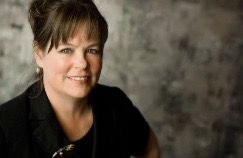Setting up new practices and healthcare businesses gives me the opportunity to meet some very creative and dedicated people. An exceptional case in point – Elizabeth Blanchard-Hills, the founder of CareConnext. She and I met several years ago while she was piloting a Transitional Care Management program for Heart Failure patients and she wanted a business model to match the care model.
Fast forward several years,and Elizabeth has taken her experience and her success and made it available to organizations who are looking for a proven way to improve care to patients, reduce healthcare costs by preventing hospital readmissions, and improve patient satisfaction.
Elizabeth agreed to an interview to update me on CareConnext.
Mary Pat: What is CareConnext?
Elizabeth: CareConnext is a care transition service giving heart failure patients renewed hope and a sense of personal control over their emotional well-being and physical health. Patients meet weekly for one month in a small group; they are coached by a multidisciplinary team and encouraged by their peers.
Mary Pat: Why would CareConnext be of interest to hospitals, physician practices or home health agencies?
Elizabeth:Hospitals interested in lowering their heart failure readmissions and improving their HCAHPS scores would benefit from CareConnext. Nurse practitioners and doctors who want to increase revenue by saving time would also benefit from CareConnext, as Medicare and private insurers will pay for this model of care. Home health agencies tell us CareConnext offers them a unique marketing edge over their competitors.
Mary Pat: What is the science behind CareConnext?
Elizabeth: CareConnext is the result of a randomized clinical trial (then called SMAC-HF) which followed more than 200 patients for five years. The results were recently published in Circulation, an American Heart Association journal for cardiologists.
Mary Pat: What is the business rationale for CareConnext?
Elizabeth: My company currently has the privilege of “transitioning” the results of the randomized clinical trial into practice. We have been conducting an on-going pilot project with The University of Kansas Hospital since November 2013, and our results are corroborating the results of the randomized clinical trial. Happily, we also discovered that Medicare and private insurers are willing to pay us for the work we do. This is an important benefit when attempting to persuade executive leadership to implement CareConnext.
There are dozens of very good interventions for heart failure, such as software solutions or post-discharge case management tools. Very few are able to pay for themselves; fewer still have the rigor of a randomized clinical trial behind their results.
Mary Pat: What are the main findings of the study?
Elizabeth: That we could, in fact, significantly lower hospital readmissions among heart failure patients.
Mary Pat: What was most surprising about the results?
Elizabeth: We have found several surprises:
- The importance of managing emotions when managing a chronic disease such as heart failure;
- The randomized clinical trial showed depression puts heart failure patients at risk for readmission; this mirrors what we are now finding in the literature; helping patients feel emotionally and spiritually better is now a signature piece of CareConnext. We screen for depression using the PHQ9, and watch our patients rebuild hope by regaining a sense of control. We do so by talking frankly and directly about sensitive issues that are often time-consuming to address: end-of- life planning, the loss of independence, or asking family members to participate in a change of diet.
- The value of peer-to- peer coaching; because of the time constraints we as health care professionals face, we too often resort to “lecturing” our patients, leaving us little time to validate our patients’ understanding, or their ability to take positive action. For example, it is easy to “tell” someone to limit their sodium intake to 2 grams a day. But does the patient even understand how to read a food label? If not, would he or she feel comfortable revealing that? CareConnext provides a safe environment for patients to recognize and overcome knowledge gaps, as they rely on one another for real-life strategies and emotional support. Our providers are mostly on “standby,” available to address specific questions or misconceptions that specifically require the expertise of an advanced practice nurse or physician.
- Our data holds across varying patient populations; patients who struggle with literacy or language benefit from our intervention as do patients who are affluent, well-educated and compliant. Only the “sickest of the sick” (Heart Failure Class III and IV) were included in the randomized clinical trial.
- Our physicians and nurse practitioners enjoy the CareConnext model, too. Our team is quite talented, and therefore much in demand at The University of Kansas Hospital. They are often recruited for interesting projects always in play at a large academic medical center. They tell us CareConnext is professionally rewarding, and a welcome change from the standard, one-on- one office visit.
Mary Pat: What should clinicians and patients take away from your report?
Elizabeth: This particular patient population will remain engaged if they find something of value. Being “noncompliant” is a convenient label we often misuse with our patients. Heart Failure patients have logical reasons for being skeptical of what they perceive as “yet another doctor’s appointment,” such as a lack of energy.
We have been quite strategic in attempting to meet our patients’ emotional needs. The “clinical stuff” (monitoring fluid volume, especially overload) we offer as part of CareConnext are the ‘greens fees’ we pay so we can address and change patient behavior. By making patients feel emotionally and spiritually empowered, we help them change the feelings they have and the choices they make.
Mary Pat: How does a reader get more information?
Elizabeth: Many organizations have approached us over the past couple of years about implementing CareConnext within their own institutions, using their own staff. We now have the experience, “lessons learned” and tools to help them be successful. Readers can email me directly to start the conversation at ehills@careconnext.org and can also visit our website: www.careconnext.org
Mary Pat: Anything else you’d like to say about CareConnext?
Elizabeth: Yes, I’d like to give you a special shout-out, Mary Pat. I first approached you with what I saw as an insurmountable problem several years ago: We had a unique care model that delivered outstanding outcomes for patients with Heart Failure, but no way to get paid for it. Using both common sense and a “roll up your shirt sleeves” approach, you helped us figure it out. Now I am excited to help others do the same, and I am grateful for your belief in me, my team and CareConnext.
Mary Pat: Thank you for the kind words, Elizabeth!
Elizabeth Blanchard Hills, BSN MSJ 
800-794-0118 (w)
913-485-0387 (m)


